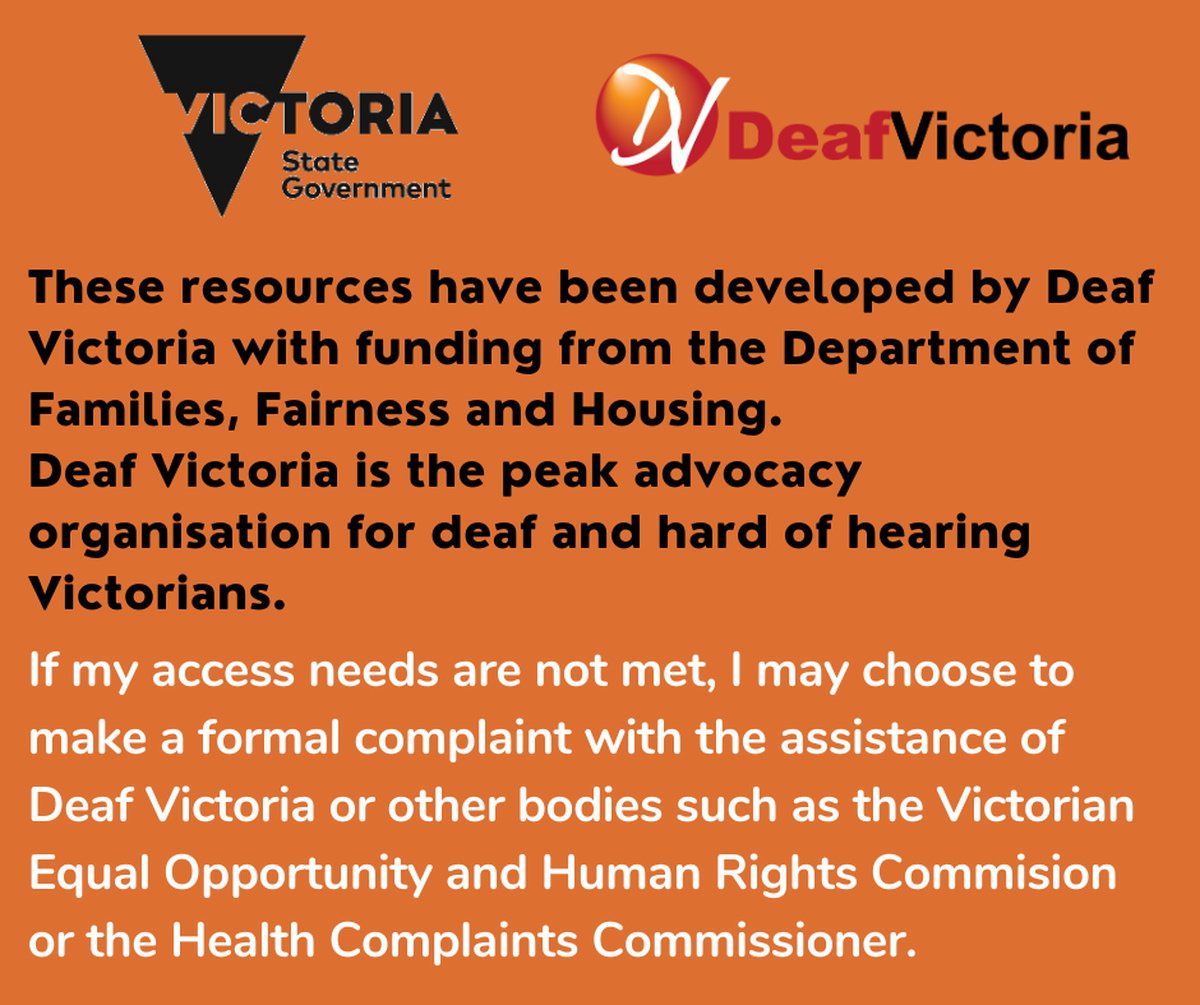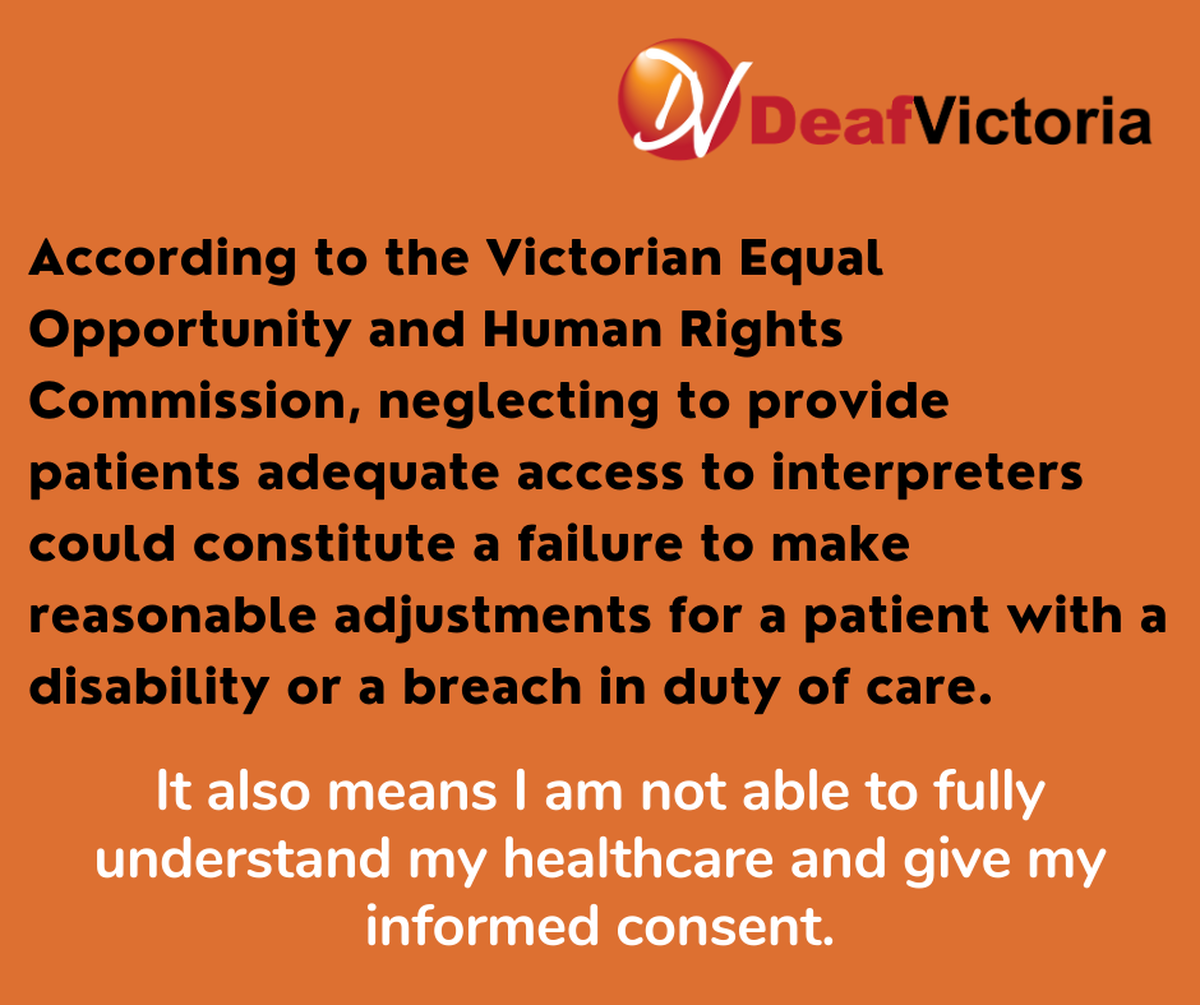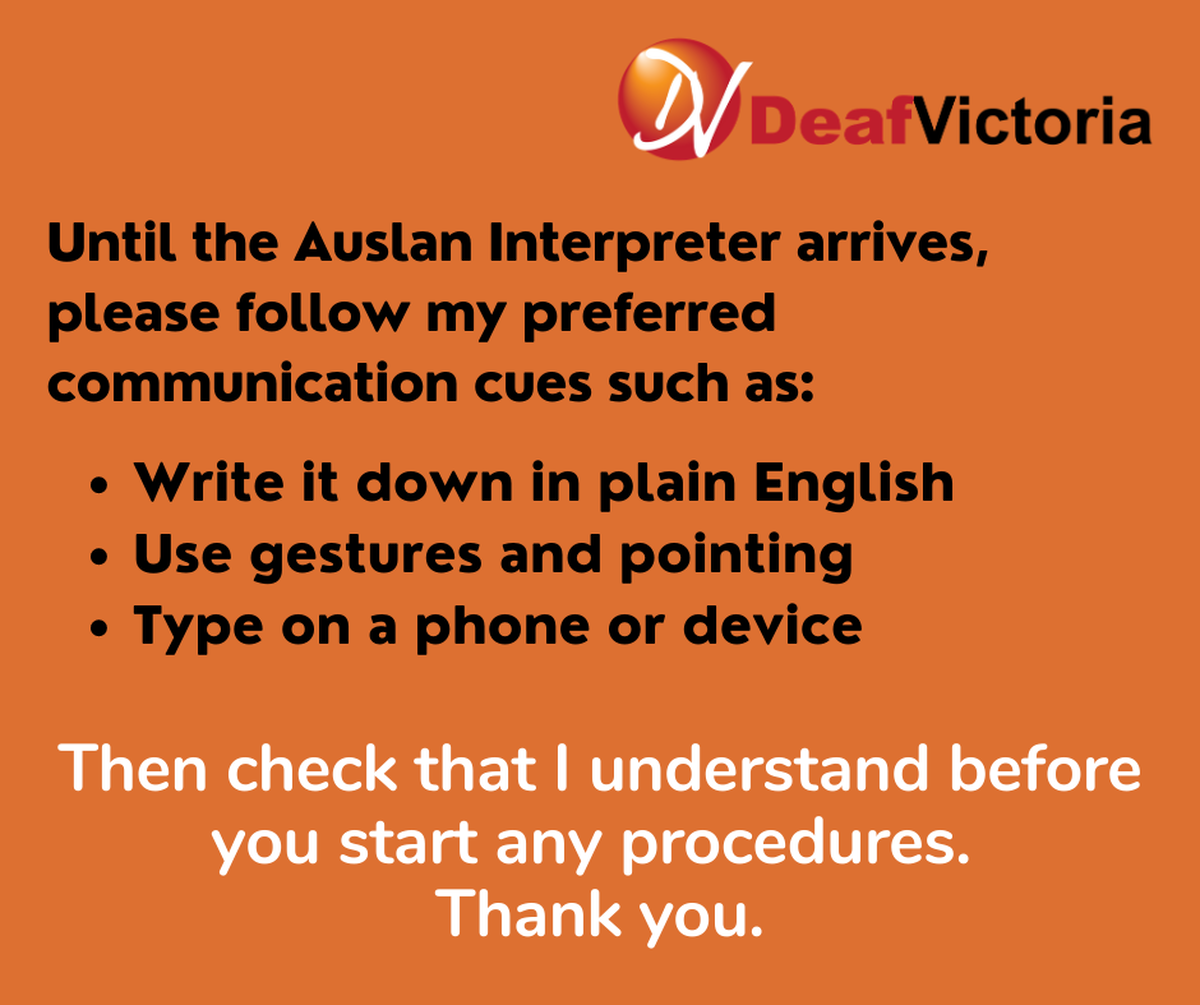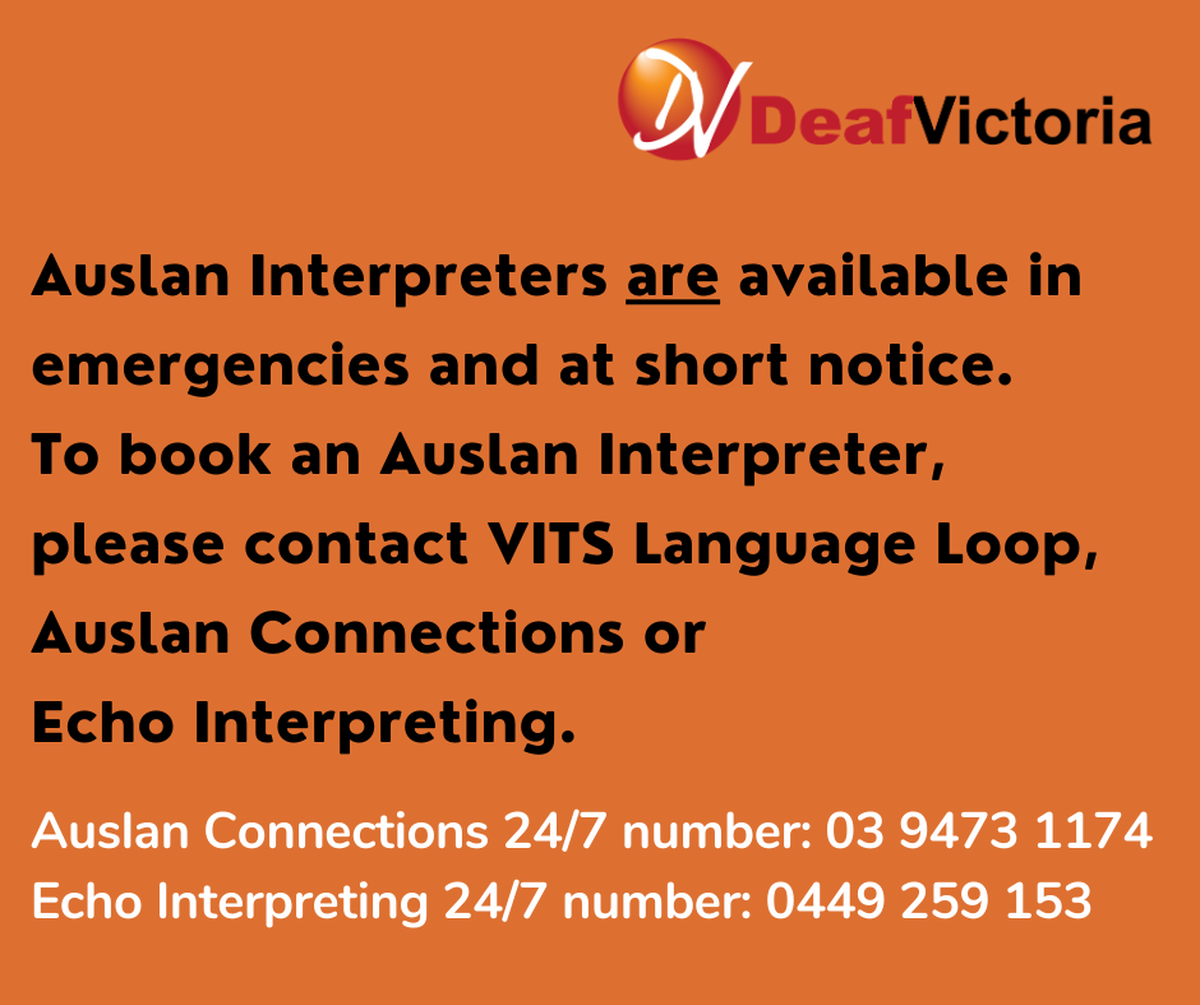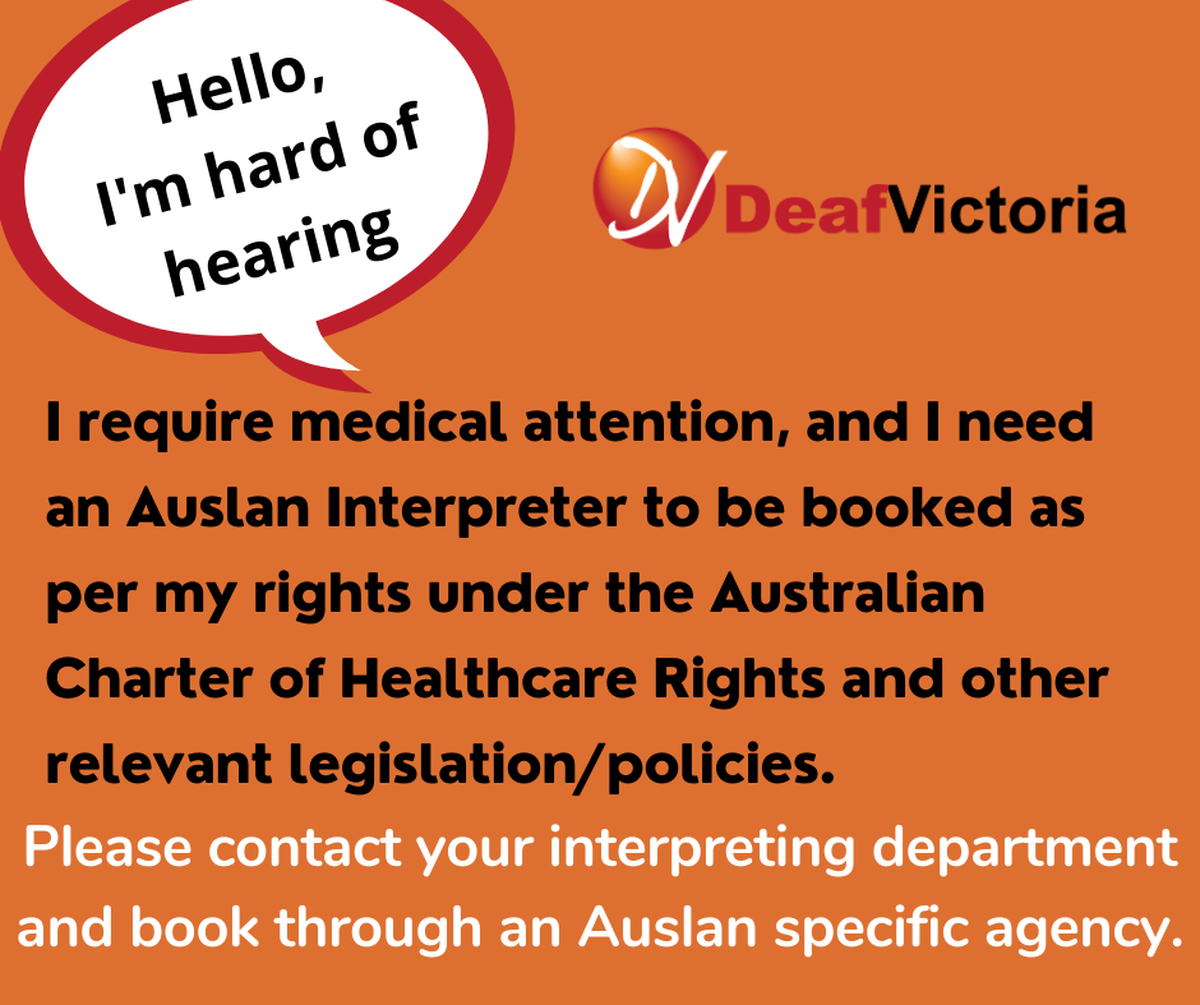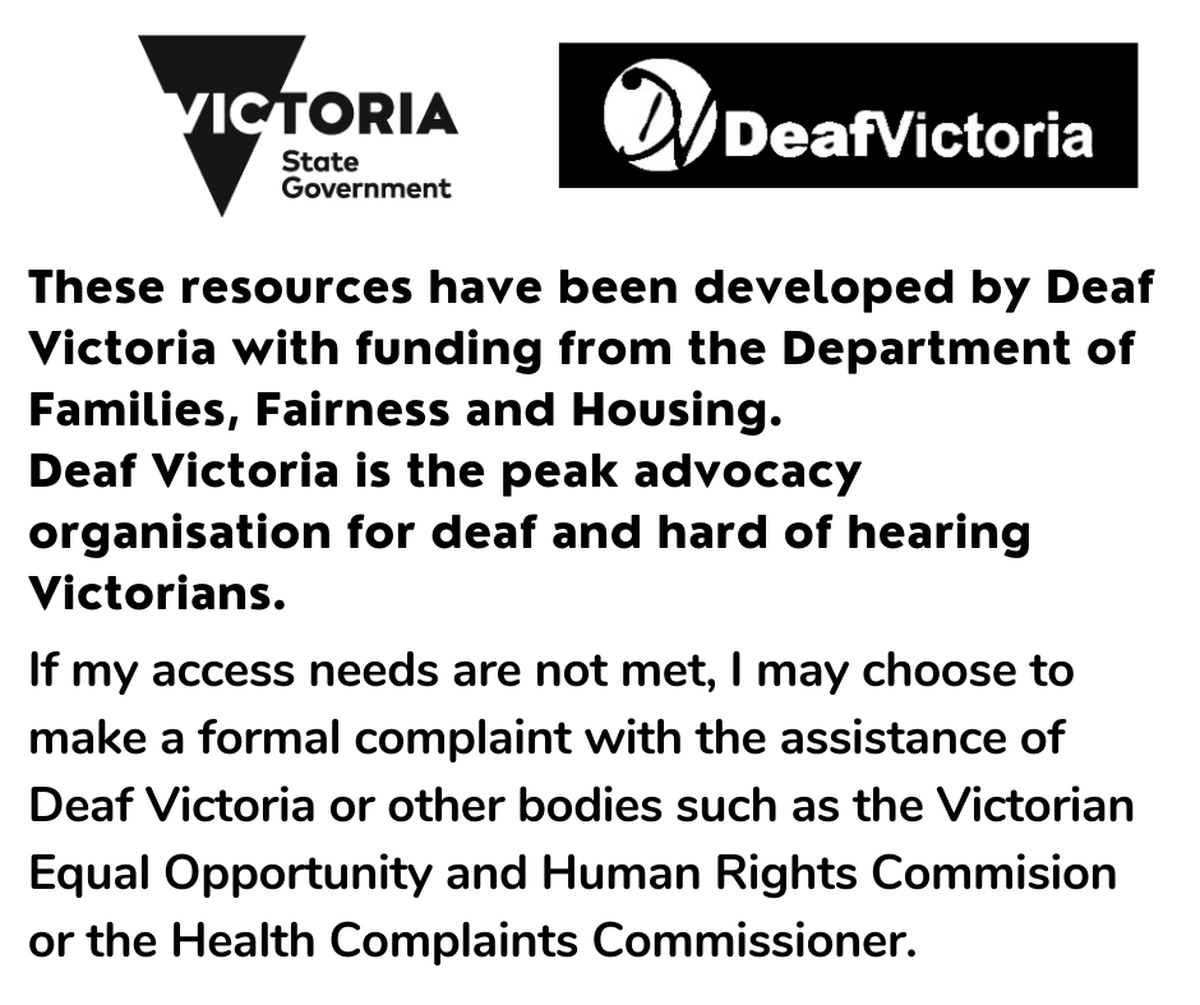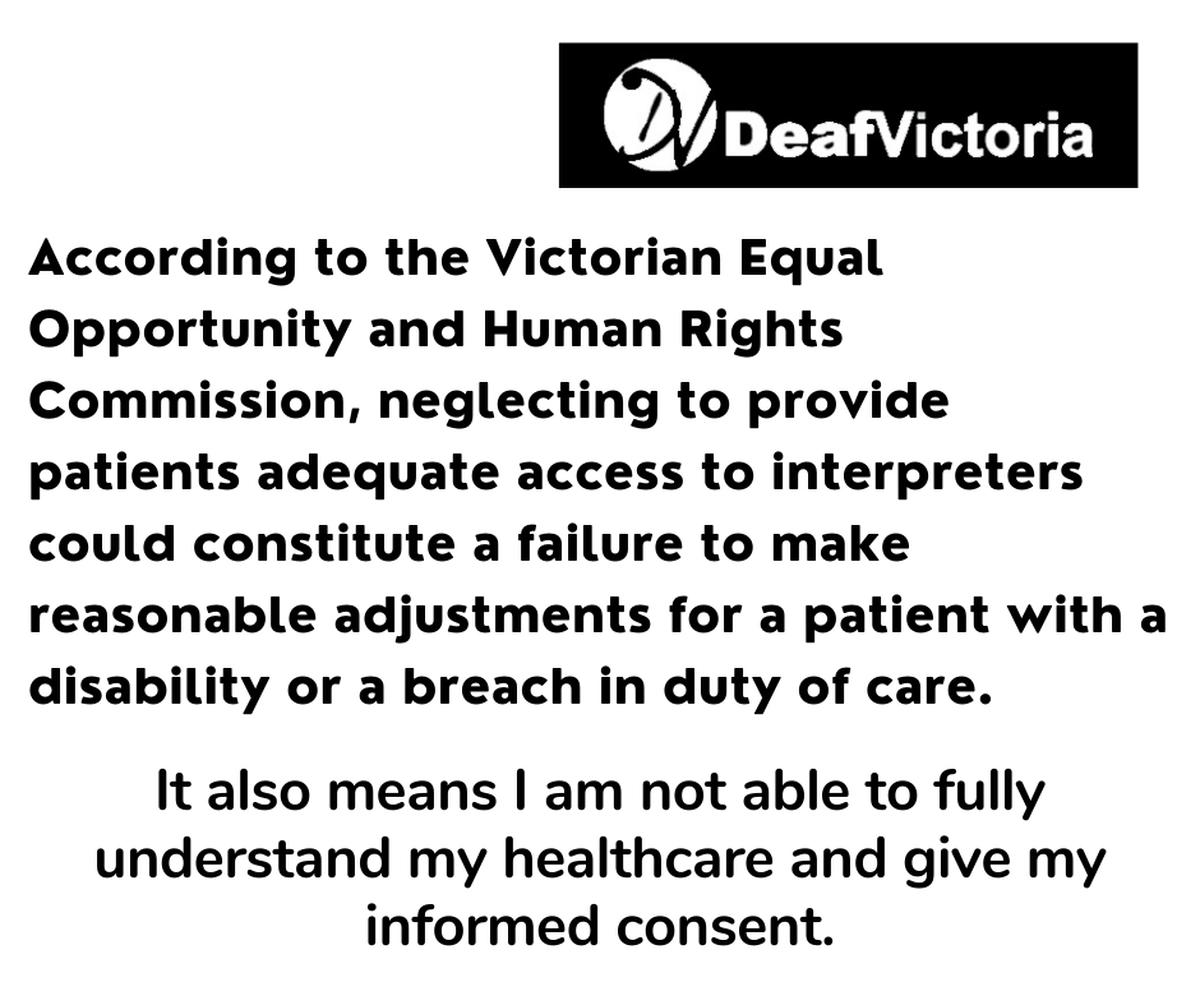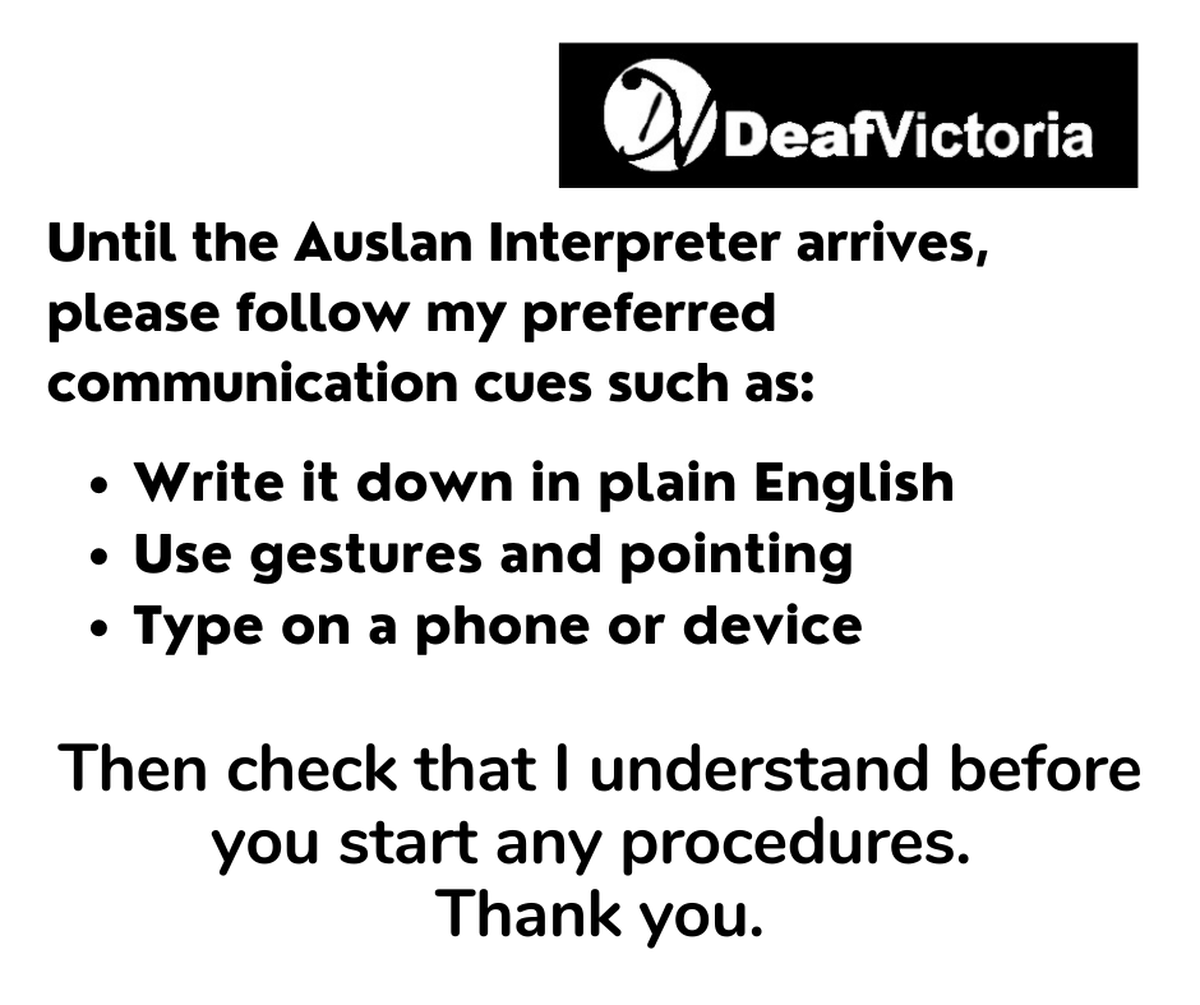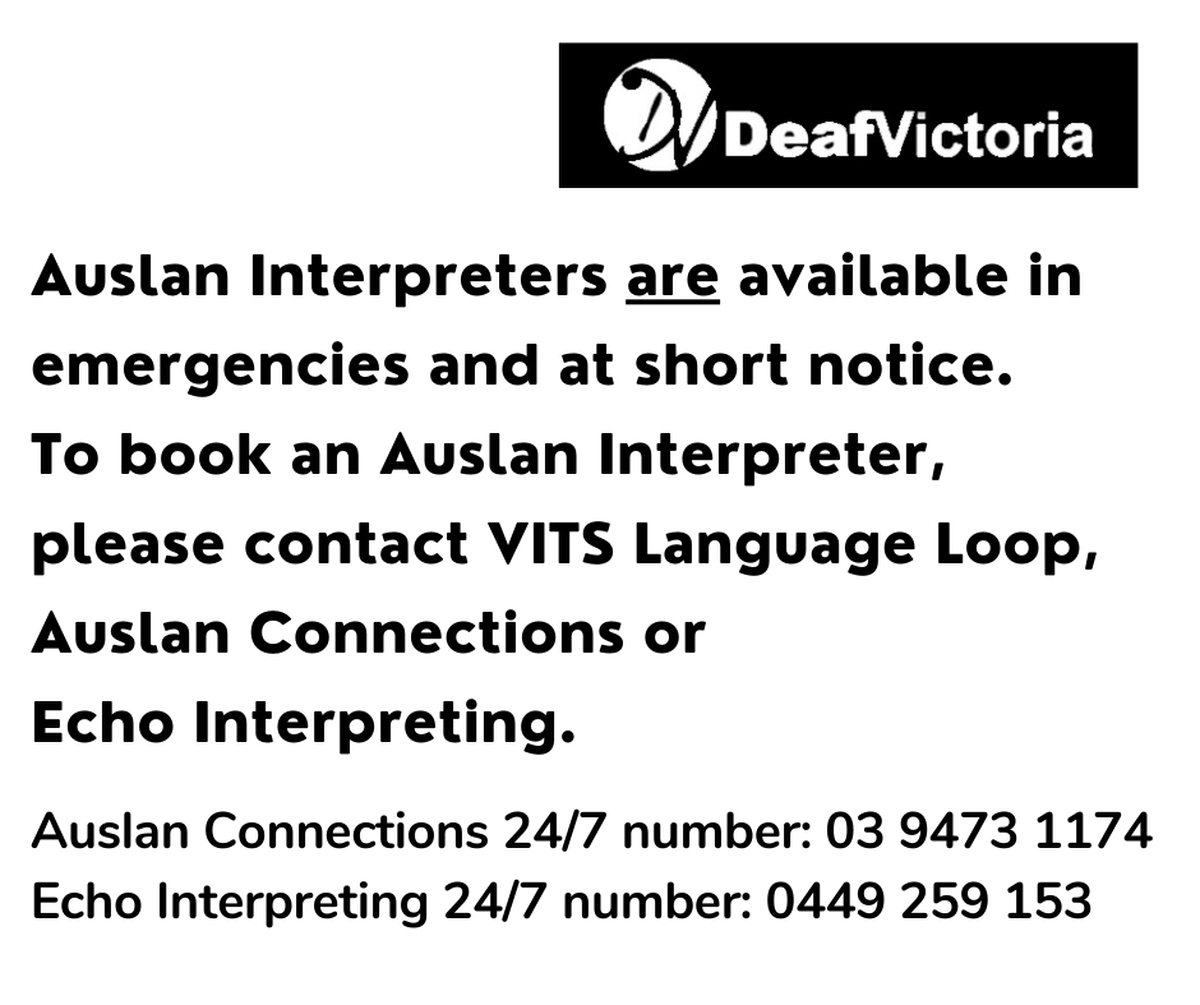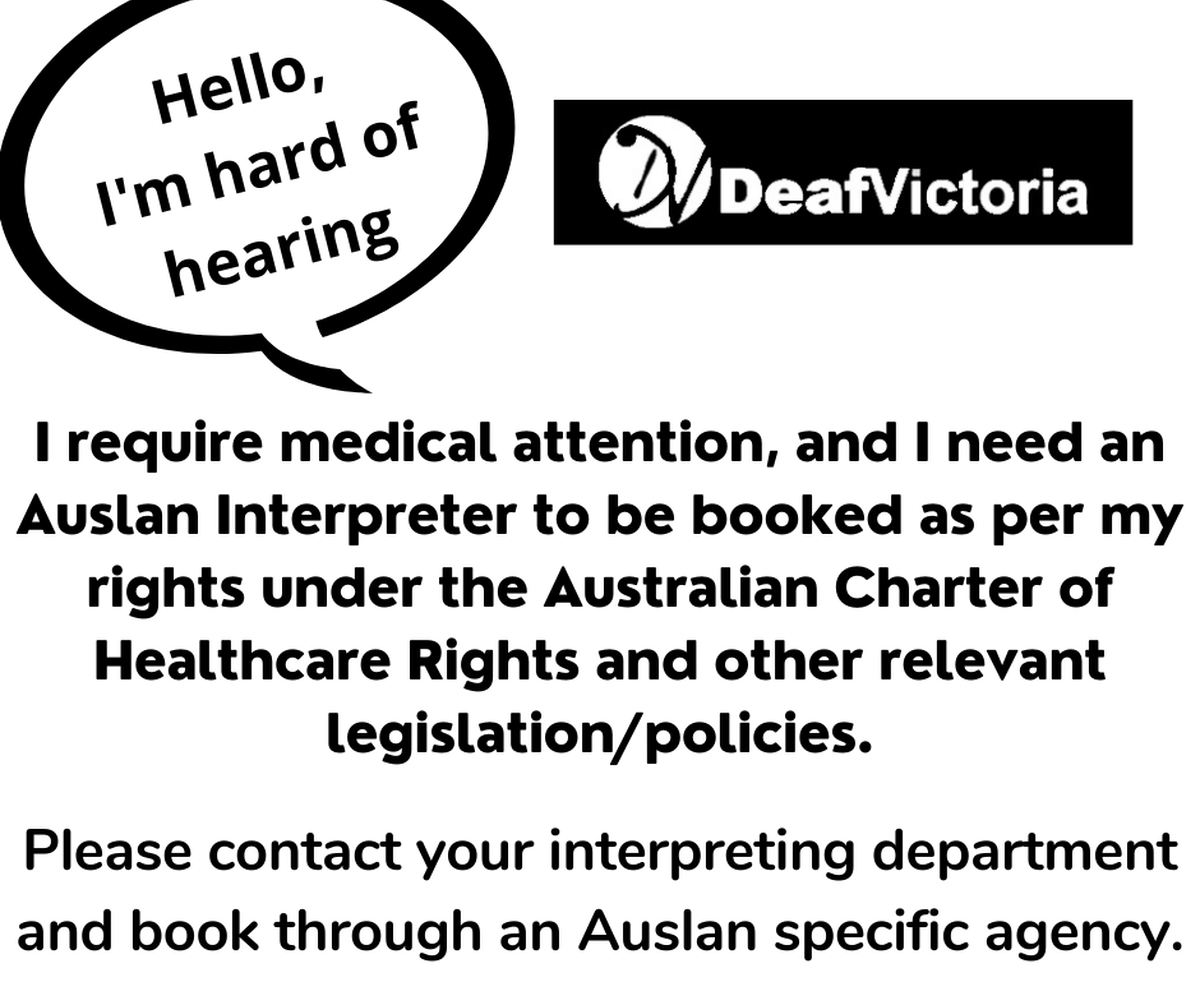Advocacy
Deaf people face many barriers and challenges when it comes to access. They are challenges we must face head-on constantly in our day-to-day lives.
In some settings, these challenges are compounded. Like in healthcare, for example.
In healthcare settings, a lack of access can have enormous repercussions. It could mean a Deaf person not having their prescription adequately explained, difficulty conveying symptoms, or an inability to establish informed consent for an operation or procedure.
In these already fraught situations, the additional burden of communications needs being accounted for can lead to serious issues.
For Deaf people, it is important to remember the responsibility of making sure your needs are met lies with the hospital or healthcare provider.
But sometimes, you may need to advocate for your needs. Healthcare providers will not always be aware of what Deaf people need. So, we need to tell them.
You can do this by:
- Having a written message on your phone asking for an Auslan interpreter
- Writing down your needs, if you feel comfortable with written English
- Asking a friend or family member to accompany you to ask for an interpreter on your behalf.
There are also pre-made resources you can use to self-advocate. These videos and graphics made by Deaf Victoria enable you to request an Auslan interpreter simply. We recommend saving the link to your smartphone or device, somewhere you can quickly access them when you need them.
Remember, your needs must be met by the hospital. For some people in some circumstances, video remote interpreting (VRI) might be a good option. But in other situations, you might require an in-person interpreter. This is your right, and you should feel comfortable and confident asking for what you need.
We know it can feel awkward or intimidating, or even like we’re being rude when we are assertive about what we need. But it’s important to remember that you have the right to be involved in every aspect of your healthcare – and you should receive the same level of access as any other person. If you require an interpreter, that’s what you should receive. It is the hospital’s responsibility to provide everyone with equal access to healthcare.
Use these resources, and remember to advocate for yourself and your rights. It can be hard – but it’s well worth it. If you need further help or advice about going to hospital or receiving care, contact an advocacy organisation in your state, or Deaf Australia for advice and referral.

